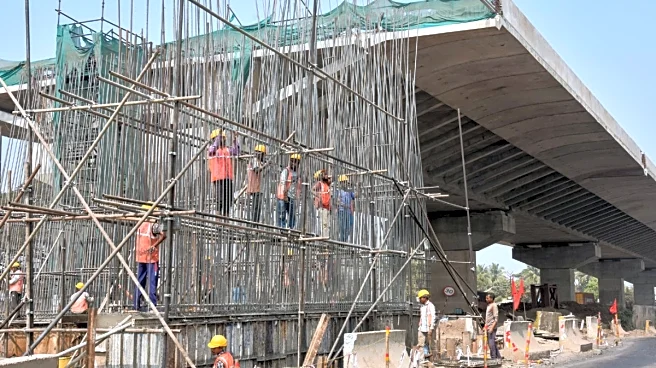Saudi Arabia has officially abolished its decades-old Kafala system, a legal framework that has governed the employment and residency of migrant workers, including millions of Indians, across Gulf Cooperation Council (GCC) states for decades.
While originally intended to regulate the flow of foreign labour needed for the oil boom economies, the system has devolved into one of the world’s most criticised labour structures, often likened by human rights organisations to modern-day slavery.
The Mechanism of Control
The core problem of the Kafala system lies in the absolute power it grants to the employer, or kafeel. This arrangement ties a migrant worker’s legal status—their visa, their right to reside in the country, and their ability to work—entirely to a single individual
or company. This sponsorship creates an extreme power imbalance.
Under this system, the worker’s fundamental rights and mobility are severely restricted:
No Freedom to Change Jobs: A worker cannot legally leave their current employer for a better opportunity, or to escape an abusive situation, without the kafeel’s explicit permission. Leaving without consent renders the worker undocumented, facing the threat of immediate arrest and deportation.
Restricted Exit: Workers often require an exit visa—the kafeel’s approval—to leave the country, even temporarily. This is a powerful tool employers use to trap workers, forcing them to remain in exploitative conditions.
Passport Confiscation: Although often illegal, the confiscation of a worker’s passport is a widespread, unpunished practice, further restricting their freedom of movement and ability to seek help.
Limited Legal Recourse: If a worker’s wages are withheld or they face physical or sexual abuse, they have minimal access to justice. Reporting the kafeel can lead to immediate termination, a declaration of “absconding,” and deportation.
The Impact on Indian Workers
Millions of low-skilled Indian workers, primarily in construction, domestic work, and manual labour sectors, have been the worst victims of this system. Desperate for higher wages to send home as remittances, they often pay exorbitant fees to recruitment agents in India, arriving in the Gulf already in debt bondage.
Once in the Gulf, the absolute control of the kafeel enables horrific abuses:
Forced Labour: Being unable to change jobs or leave the country effectively turns a contract into forced labour. Workers endure brutal hours, often without a single day off, under the threat of punishment or deportation.
Wage Theft: Non-payment or severe delay of promised wages is common, leaving workers unable to send money home or repay their initial loans.
Abuse and Isolation: Domestic workers, mostly women, are especially vulnerable, as they are isolated within private homes, excluded from labour laws, and at high risk of physical and sexual violence with no immediate escape.
The Future of Reform
Facing intense international scrutiny, particularly around high-profile events, some Gulf states have begun enacting reforms. Saudi Arabia, for instance, recently announced a shift to a contract-based employment system that grants workers the freedom to change jobs and leave the country without the kafeel’s approval.
While these reforms are historic steps towards restoring dignity, labour rights groups caution that implementation and enforcement remain the crucial test. The deeply entrenched power structure of Kafala-style controls continues to affect millions of Indian labourers in several Gulf nations, making vigilance essential to ensure that legal change translates into true freedom and safety on the ground.


/images/ppid_a911dc6a-image-177074813127457865.webp)
/images/ppid_a911dc6a-image-177074805788931893.webp)
/images/ppid_a911dc6a-image-177074817751365859.webp)




/images/ppid_a911dc6a-image-177075157301840277.webp)


/images/ppid_59c68470-image-177075003745079834.webp)

/images/ppid_59c68470-image-177075003659953644.webp)



